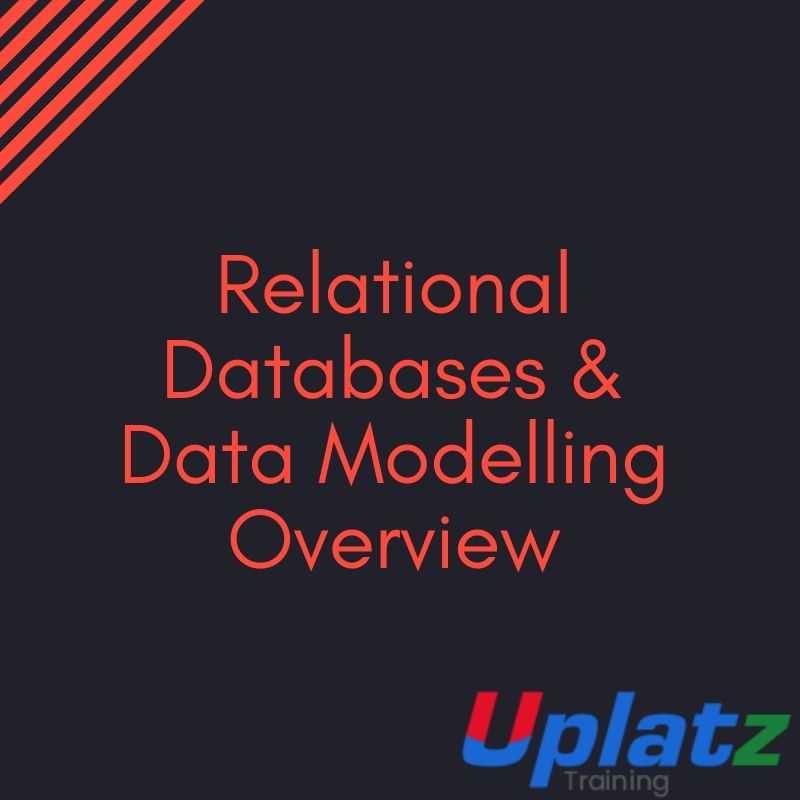Relational Databases & Data Modelling Overview

Relational Databases & Data Modelling Overview Course Overview
The Relational Databases & Data Modelling Overview course is designed to give delegates practical experience in data modelling using entity relationship diagrams & data normalisation, also in designing relational databases using the normalised entity model. Both entity modelling and data normalisation form core elements of this course. Delegates are not expected to have any prior knowledge of systems analysis or databases, and the course includes a brief introduction to the principles of systems analysis.
-----------------------------------------------------------------------------------------------------------------------------------
Who will the Course Benefit?
Developers moving into the area of relational databases who need an understanding of the principles and logic of the relational database; programmers who are to start programming in SQL and need to know the principles on which it is built; programmers who need to understand entity modelling and normalization; analysts needing a knowledge of entity modelling and entity relationship diagrams and any others who need to know the principles of relational analysis and data modelling but do not need a complete systems analysis course.
------------------------------------------------------------------------------------------------------------------------------
Course Objectives
The Relational Databases & Data Modelling Overview course provides an understanding of the structure of a RDBMS (Relational Database Management System) and the underlying principles of relational analysis and data modelling.
------------------------------------------------------------------------------------------------------------------------------
This is a Relational Databases & Data Modelling Overview course by Uplatz.
Relational Databases & Data Modelling Overview
Relational Databases & Data Modelling Overview Training Course
Course Introduction
- Administration and Course Materials
- Course Structure and Agenda
- Delegate and Trainer Introductions
Session 1: INTRODUCTION TO RELATIONAL DATABASES
- The Database Approach
- Database Management Systems
- The function of a Database Management System
- The Processing Architecture
- The Schema Architecture
- The Storage Architecture
- An overview of Database System Development
- An overview of general database principles
Session 2: CONCEPTUAL DATA MODELS
- Overview of Entity Models
- Entities and how to identify them
- Attributes and how to identify them
- Relationships and their qualities
- Building an Entity Relationship Diagram
- Resolving many-to-many relationships
- Sub-type and Super-type Relationships
- Arc Relationships
- Recursive Relationships
- Constraints and Assumptions
- Normalisation to the First Normal Form (1NF)
- Normalisation to the Second Normal Form (2NF)
- Normalisation to the Third Normal Form (3NF)
- Exercises:
- Analysing a specification
- Creating an Entity Relationship Diagram from the specification
-
Relational Databases & Data Modelling Overview Training Course
Session 2: CONCEPTUAL DATA MODELS (continued)
- Normalisation to the First Normal Form (1NF)
- Normalisation to the Second Normal Form (2NF)
- Normalisation to the Third Normal Form (3NF)
- Exercises: Data Normalisation producing table specifications and Entity Diagrams
Session 3: THE RELATIONAL MODEL
- Relational Structure
- Relational Terminology
- Domains
- A Relational schema
- Candidate keys and Primary Keys
- Foreign Keys
- Key Constraints
- Attribute Constraints
- Implementing Sub-type/Super-type Relationships
- Views
- Denormalisation using Pre-joined Tables
- Denormalisation using Derived Data
- An Introduction to Structured Query Language (SQL)
- Simple Queries
- Simple Updates of the Data
- Exercise: Data Modelling from an Invitation to Tender








